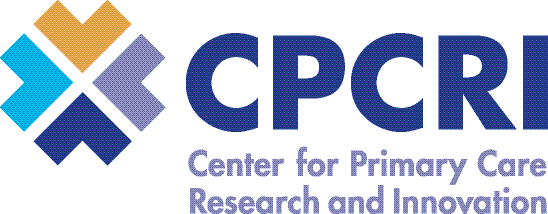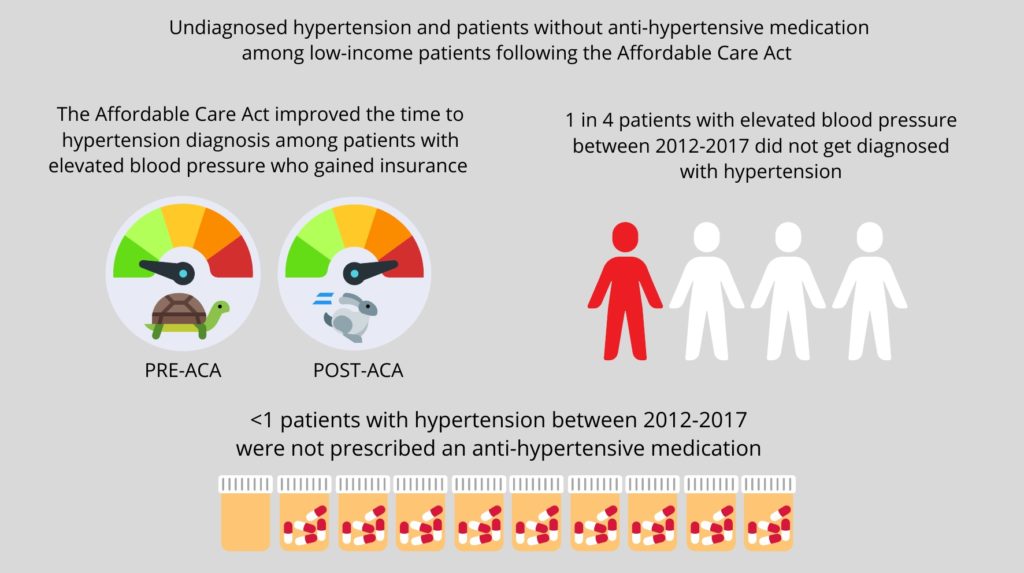Background
Uncontrolled hypertension is the largest single contributor to all-cause and cardiovascular mortality. Access to health insurance is a critical aspect of hypertension detection, treatment, and control and a lack of insurance can greatly exacerbate barriers to successful hypertension care and management. The Affordable Care Act (ACA) Medicaid expansion led to better access to health insurance and health care services for patients, but it is unclear whether this improved access resulted in fewer patients with undiagnosed hypertension. Utilizing electronic health record (EHR) data for 126,699 community health center (CHC) patients, this study assessed whether the rate of patients with undiagnosed hypertension and the rate of patients with hypertension without anti-hypertensive medication decreased post-ACA.
Useful Findings
Overall, 37.3% of patients with high blood pressure did not have a diagnosis of hypertension and 27.0% of patients who have hypertension were without a prescribed anti-hypertensive medication. The rate of undiagnosed hypertension decreased from 2012 through 2017. Those who gained insurance had the lowest rates of undiagnosed hypertension. Patients with hypertension were also more likely to receive anti-hypertension medication post-ACA.
Bottom Line
This study published in the American Journal of Hypertension, found that those who gained health insurance were appropriately diagnosed with hypertension faster and more frequently post-ACA than those with other insurance types. These findings support previous studies that showed CHC patients benefitted from the ACA, however, more research is needed to understand the barriers to hypertension diagnosis and treatment in CHC populations.

